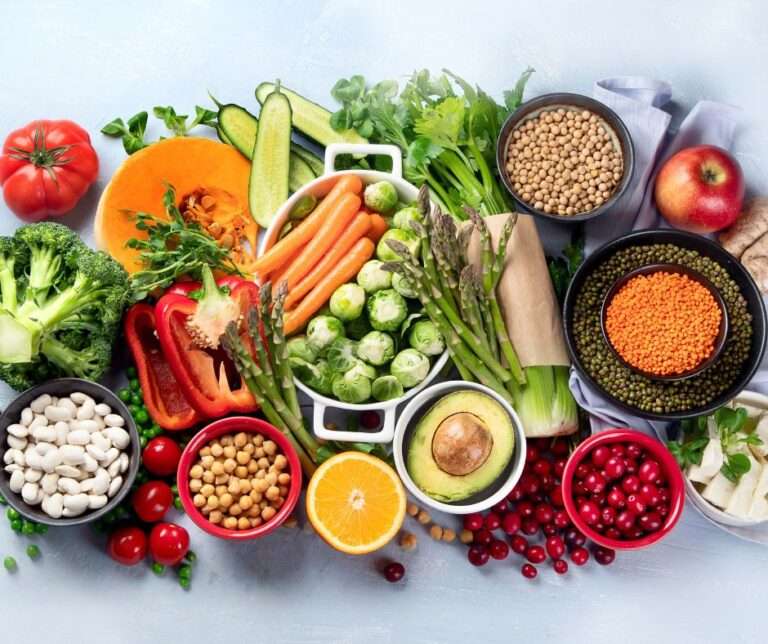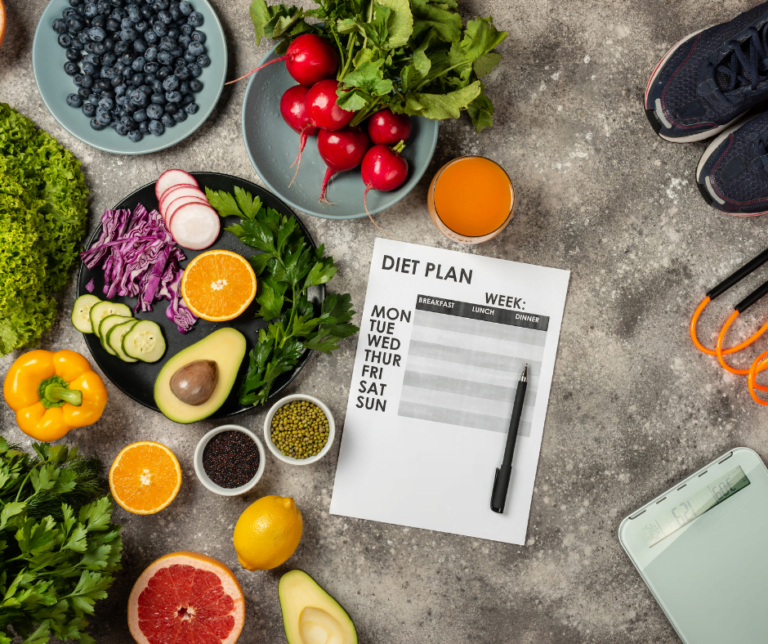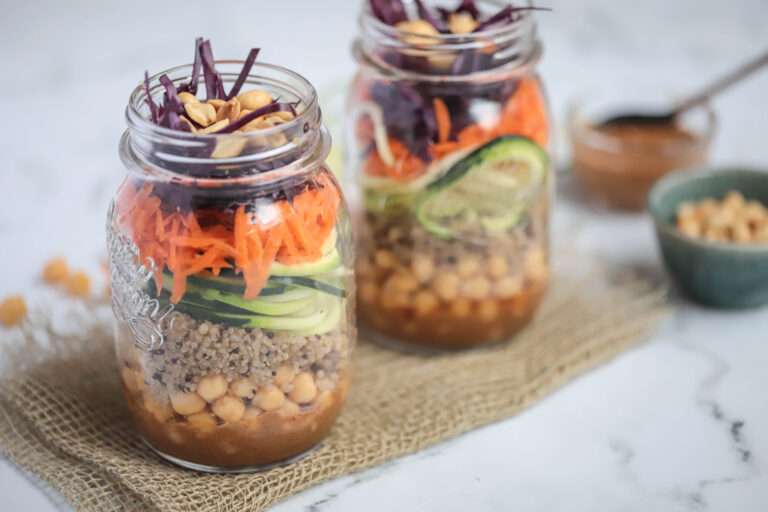Ladies, have you ever felt frustrated with yo-yo dieting? Have you ever felt overwhelmed by the sheer amount of conflicting weight loss advice out there? Or perhaps you’ve felt disappointed by the lack of results from restrictive diets? If you don’t address these issues, you may continue to struggle with weight loss, feel constantly tired, and even risk serious health problems.
That’s why it’s crucial to read this guide. We’re here to help you achieve sustainable weight loss, regain your health, and boost your confidence with a plant-based approach. By applying the information in this article, you can expect to see three main benefits: a healthier body, a more positive mindset, and a more sustainable lifestyle.
Sustainable weight loss isn’t about quick fixes or drastic diets. It’s about making long-term changes to your lifestyle that can help you maintain a healthy weight for good. This is particularly important for you, the professional woman. Sustainable weight loss can help you stay healthy, confident, and energized, improving your performance both at work and at home.
Our online nutrition business is dedicated to helping women like you achieve sustainable weight loss through plant-based diets. Our services are designed to provide the support, resources, and guidance you need to make lasting changes to your eating habits.
Common Weight Loss Mistakes

When it comes to weight loss, everyone’s journey is unique. However, there are some common mistakes that many people make which can hinder their progress. Being aware of these pitfalls can help you avoid them and stay on track towards achieving your weight loss goals.
- Skipping Meals: Some people believe that skipping meals can help them lose weight faster. However, this can lead to overeating later in the day and may also slow down your metabolism, making weight loss more difficult.
- Not Drinking Enough Water: Water is essential for many bodily functions, including metabolism. Not drinking enough water can lead to dehydration, which can slow down your metabolism and hinder weight loss.
- Over-reliance on Diet Foods: Just because a food is labeled as “diet” or “low-fat” doesn’t necessarily mean it’s healthy or low in calories. These foods can often be high in sugar and other unhealthy ingredients. It’s important to read food labels carefully.
- Not Getting Enough Sleep: Lack of sleep can disrupt your metabolism and increase your hunger and cravings, making it harder to stick to your diet and exercise plan.
- Setting Unrealistic Goals: Losing weight takes time and patience. Setting unrealistic goals can lead to frustration and may cause you to give up on your weight loss journey.
- Falling for Fad Diets or Restrictive Eating: Fad diets or overly restrictive eating plans may promise quick results, but they are often unsustainable in the long term and can lead to nutrient deficiencies. A balanced, varied diet is key to healthy weight loss.
- Neglecting Movement: While structured exercise is beneficial, simply moving more throughout the day can also contribute to weight loss. This could include walking, taking the stairs instead of the elevator, or even doing household chores.
Remember, weight loss is a journey, not a race. Avoiding these common mistakes can help you stay on track and achieve your weight loss goals in a healthy and sustainable way. Plus we will be going into more detail on how to remedy these mistakes below.
Understanding Plant-Based Diets
A plant-based diet focuses on foods primarily from plants. This includes not only fruits and vegetables, but also nuts, seeds, oils, whole grains, legumes, and beans. There are different types of plant-based diets, from a diet that includes animal products in small amounts to a vegan diet that excludes all animal products.

There are many misconceptions about plant-based diets. However, a well-planned plant-based diet can be diverse, delicious, and nutritionally complete. For more information, read our blog post on What is a Plant-Based Diet and Why You Should Try It.
Interestingly, some of the strongest animals on Earth, like gorillas and elephants, follow a plant-based diet. This is a testament to the power and nutritional adequacy of plant-based foods.
Benefits of Plant-Based Diets for Sustainable Weight Loss
Plant-based diets come with a plethora of health benefits. They are rich in fiber, vitamins, and minerals that can help boost your immune system and improve your overall health. They are also low in saturated fat and high in antioxidants, which can help prevent chronic diseases like heart disease and cancer.
When it comes to sustainable weight loss, plant-based diets can play a crucial role. They are typically lower in calories and higher in fiber than diets that include a lot of meat and dairy, which can help you feel full and satisfied without overeating.
Moreover, plant-based diets are better for the environment. They require less water, less land, and produce fewer greenhouse gas emissions than diets rich in animal products. For more insights, check out our blog posts on Why is Plant-Based Eating Better for the Planet and You? and How Going Plant-Based Can Add Years to Your Life!.
Steps to Achieve Sustainable Weight Loss with Plant-Based Diets
Achieving sustainable weight loss with a plant-based diet involves more than just swapping meat for vegetables. It’s about making a series of changes to your lifestyle that promote health and well-being. Here are seven steps to help you get started:
1. Educate Yourself
Understanding the benefits of a plant-based diet and the nutritional needs of your body is the first step towards healthy living. This knowledge will help you make informed decisions about what to eat and when. It will also help you understand the importance of a balanced diet in maintaining a healthy weight. Education about nutrition can also help you understand how different foods can affect your metabolism, energy levels, and satiety, which are all important factors in weight management.
2. Plan Your Meals
Planning your meals in advance can help ensure that you’re getting a balanced diet that includes all the necessary nutrients. It can also help you avoid impulse eating and overeating, which are common contributors to weight gain. Meal planning can also make it easier to control portion sizes, which is crucial for weight management. According to a study in the American Journal of Preventive Medicine, taking the time to plan and prepare your meals can lead to healthier eating habits.
3. Cook at Home
Cooking at home gives you control over the ingredients in your meals. This can help you avoid processed foods, which often contain unhealthy amounts of sugar, salt, and unhealthy fats. Cooking at home also allows you to control portion sizes, which can help with weight management. A study published in the Public Health Nutrition journal found that people who cook at home are more likely to have a lower Body Mass Index (BMI) than those who eat out frequently.

4. Stay Hydrated
Drinking plenty of water can help control hunger and prevent overeating. It can also help boost your metabolism, which can aid in weight loss. Additionally, staying hydrated can help your body function properly, which is important for overall health. A study in the Journal of Clinical Endocrinology and Metabolism found that staying hydrated can help your body burn more calories.
5. Get Active
Regular physical activity is crucial for weight loss and overall health. Exercise can help burn calories, boost your metabolism, and improve your mood. It can also help you maintain muscle mass, which is important for maintaining a healthy metabolic rate.
6. Sleep Well
Good sleep is essential for weight management and overall health. Lack of sleep can disrupt your metabolism and increase your hunger and cravings for unhealthy foods. Good sleep can also help you maintain a healthy weight by regulating hormones that control hunger and satiety.

7. Stay Positive
Maintaining a positive attitude can help you stay motivated and committed to your weight loss goals. It’s important to remember that sustainable weight loss takes time and patience. Celebrating small victories along the way can help keep you motivated.
Each of these steps contributes to sustainable weight loss by promoting healthy habits and behaviors. They all work together to create a lifestyle that supports weight management and overall health.
Optimizing Eating Habits for Sustainable Weight Loss
Optimizing your eating habits is key to achieving sustainable weight loss. Here are some tips to help you get started:
Diversify Your Diet
A common misconception about adopting a plant-based diet is that it involves eliminating a multitude of foods from your meals. However, the reality is quite the opposite. Transitioning to a plant-based diet can actually introduce you to a whole new world of diverse and nutritious foods to explore and enjoy.
A plant-based diet is not just about cutting out meat and dairy products. It’s about embracing a wide array of fruits, vegetables, whole grains, legumes, nuts, and seeds. Each of these food groups offers a unique set of essential nutrients, contributing to a balanced and nutrient-rich diet.
According to a study published in the Journal of Nutrition, dietary diversity is associated with nutrient adequacy and diet quality. This means that a diverse diet can help you meet your nutritional needs and improve the overall quality of your diet.
So, instead of focusing on what you’re eliminating when you go plant-based, consider all the nutritious and flavorful foods you can add to your meals. The benefits of a diverse diet are numerous, from supporting your health to enhancing your culinary experience. By embracing the variety that a plant-based diet offers, you’re not only promoting your own health but also contributing to a more sustainable and ethical food system.
Cook at Home
As we’ve previously discussed, cooking at home offers numerous benefits, including the ability to control the ingredients in your meals. This often results in healthier and lower-calorie dishes compared to those served in restaurants. A study published in the Public Health Nutrition journal found that cooking dinner at home was inversely associated with BMI. This means that people who cook at home are more likely to have a lower Body Mass Index (BMI) than those who eat out frequently.
However, we understand that for busy professionals, finding the time to cook can be a challenge. Here are a few strategies to make it easier:
- Meal Prep: Dedicate a few hours on the weekend to prepare meals for the week. This can save you a lot of time during the weekdays.
- Use a Slow Cooker or Instant Pot: These appliances can make cooking more hands-off, allowing you to do other things while your meal cooks.
- Keep It Simple: Not every meal has to be a gourmet feast. Simple meals with a few ingredients can be just as nutritious and satisfying.
- Make Use of Frozen Vegetables and Pre-Cut Produce: These can save you a lot of prep time and still provide the same nutritional benefits as their fresh counterparts.
Remember, the goal is to make home cooking a manageable part of your routine, not an added source of stress.
Prioritize Grocery Shopping
Keeping your kitchen stocked with wholesome ingredients not only makes it easier to prepare healthy meals and snacks when you’re hungry, but it also significantly reduces the likelihood of resorting to less nutritious alternatives such as takeaways or convenience snacks. According to a study in the American Journal of Preventive Medicine, a greater amount of time spent on meal preparation was associated with better dietary quality and better fruit and vegetable intake. This suggests that investing time in grocery shopping and meal preparation can lead to healthier eating habits.

Make Plant Foods the Base of Your Diet
Filling your plate with plant foods first, then adding in small amounts of animal products if desired, can help ensure you get a variety of nutrients while keeping your calorie intake in check. A study published in the Journal of Geriatric Cardiology states that plant-based diets are low in energy density and high in complex carbohydrate, fiber, and water, which may increase satiety and resting energy expenditure. This means that a plant-based diet can help you feel fuller for longer and increase the amount of energy you burn while at rest.
Prioritize Water Over Soda
While sugary drinks can significantly contribute to your daily calorie intake, it’s important to note that there are other low-calorie alternatives to water. These include sugar-free soft drinks and both flavored and unflavored sparkling water. These options can help satisfy your cravings for a sweet or fizzy drink without the extra calories that come with sugary beverages. According to a study in the American Journal of Clinical Nutrition, increased water consumption is associated with decreased calorie intake and less weight gain. This suggests that not only water, but also other low-calorie drink options, can help you manage your calorie intake and weight more effectively. By choosing these alternatives, you can enjoy a variety of beverages without compromising your dietary goals.
Focus on Including a Protein Source in Each Meal
Protein is essential for many bodily functions, including muscle repair and growth. Including a source of protein in each meal can help ensure you meet your protein needs.
There are a variety of protein sources to choose from, including both animal-based and plant-based options.
Plant-Based Proteins
For those following a vegetarian, vegan, or plant-based diet, or for anyone looking to diversify their protein sources, there are plenty of plant-based proteins available. These include tofu, tempeh, seitan, protein powder, and edamame. These plant-based proteins can be excellent choices for incorporating into your meals.

A study in the Journal of Nutrition states that protein intake was associated with improved feelings of fullness after meals. This means that consuming protein, whether it’s from animal or plant sources, can help you feel more satisfied after meals, which can help prevent overeating. This is another reason why it’s beneficial to include a source of protein in each of your meals.
Remember, sustainable weight loss is a journey, not a destination. It’s about making changes that you can stick with for the long term, not just until you reach your goal weight. With the right support and resources, you can achieve sustainable weight loss and enjoy a healthier, happier life.
Thank you for reading, and stay tuned for more informative posts on sustainable weight loss and plant-based diets.





